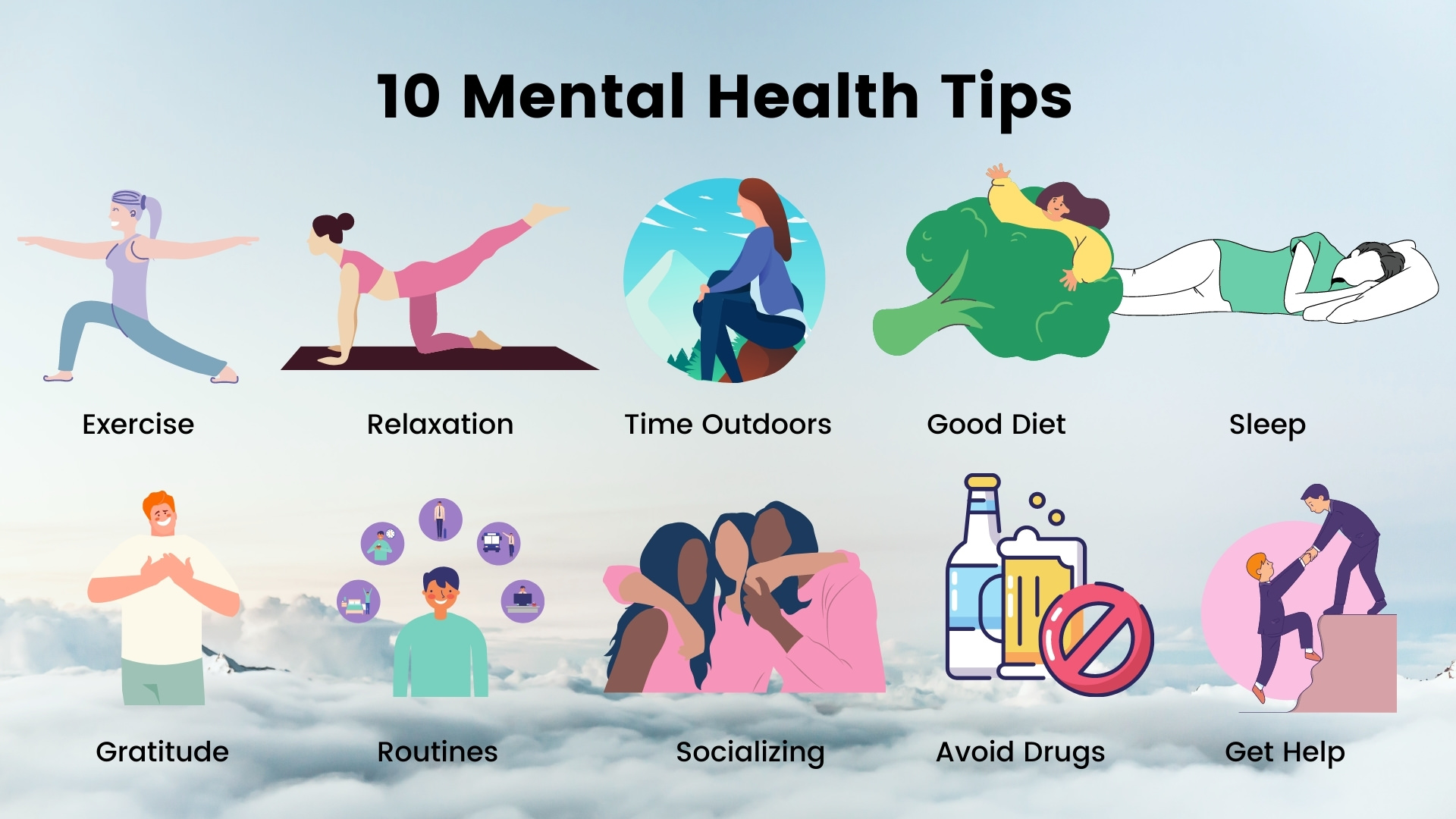Maintaining good mental health and a positive mood is essential for overall well-being and quality of life. While it’s normal to experience ups and downs, there are several strategies you can use to enhance your mood and support your mental health. Here are ten effective tips to help you boost your mood and improve your mental health:
Stay active:
Regular physical activity is one of the most effective ways to boost your mood and reduce feelings of stress and anxiety. Aim for at least 30 minutes of moderate exercise most days of the week, such as walking, jogging, swimming, or cycling.
Eat a balanced diet:
A healthy diet can have a significant impact on your mood and mental health. Focus on eating a balanced diet rich in fruits, vegetables, whole grains, lean proteins, and healthy fats. Avoid excessive consumption of processed foods, sugary snacks, and caffeine, as these can negatively affect your mood.
Get enough sleep:
Quality sleep is essential for good mental health. Aim for 7-9 hours of sleep per night and establish a regular sleep schedule by going to bed and waking up at the same time every day. Create a relaxing bedtime routine to help you unwind and prepare for sleep.
Practice mindfulness and meditation:
Mindfulness and meditation are powerful tools for reducing stress, anxiety, and negative thinking patterns. Take a few minutes each day to practice deep breathing exercises, meditation, or mindfulness techniques to help calm your mind and improve your mood.
Connect with others:
Social connections are vital for good mental health. Make an effort to spend time with friends and family, join social groups or clubs, and reach out to others for support when you need it. Connecting with others can help reduce feelings of loneliness and boost your mood.
Limit your exposure to negative news and social media:
Constant exposure to negative news and social media can have a detrimental effect on your mood and mental health. Limit your consumption of news and social media, and take breaks when you need to disconnect and recharge.
Practice gratitude:
Cultivating an attitude of gratitude can help shift your focus from negative to positive thoughts. Take time each day to reflect on the things you’re grateful for, whether it’s your health, relationships, or simple pleasures like a beautiful sunset or a delicious meal.
Engage in activities you enjoy:
Doing activities you enjoy can help boost your mood and reduce feelings of stress and anxiety. Whether it’s reading, painting, gardening, or playing a musical instrument, make time for activities that bring you joy and relaxation.
Seek professional help if needed:
If you’re struggling with your mood or mental health, don’t hesitate to seek help from a mental health professional. They can provide you with the support and guidance you need to improve your mental well-being and develop healthy coping strategies.
Practice self-care:
Prioritize self-care and make time for activities that nourish your mind, body, and soul. Whether it’s taking a long bath, practicing yoga, or spending time in nature, make self-care a priority in your daily routine.
By incorporating these strategies into your daily life, you can boost your mood, improve your mental health, and enjoy a greater sense of well-being and happiness. Remember, taking care of your mental health is just as important as taking care of your physical health, so make it a priority every day.

Leave feedback about this